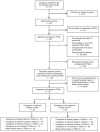What makes orphans in Kigali, Rwanda, non-adherent to antiretroviral therapy? Perspectives of their caregivers
- PMID: 25477050
- PMCID: PMC4256520
- DOI: 10.7448/IAS.17.1.19310
What makes orphans in Kigali, Rwanda, non-adherent to antiretroviral therapy? Perspectives of their caregivers
Abstract
Introduction: Every year, approximately 260,000 children are infected with HIV in low- and middle-income countries. The timely initiation and high level of maintenance of antiretroviral therapy (ART) are crucial to reducing the suffering of HIV-positive children. We need to develop a better understanding of the background of children's ART non-adherence because it is not well understood. The purpose of this study is to explore the background related to ART non-adherence, specifically in relation to the orphan status of children in Kigali, Rwanda.
Methods: We conducted 19 focus group discussions with a total of 121 caregivers of HIV-positive children in Kigali. The primary data for analysis were verbatim transcripts and socio-demographic data. A content analysis was performed for qualitative data analysis and interpretation.
Results: The study found several contextual factors that influenced non-adherence: among double orphans, there was psychological distance between the caregivers and children, whereas economic burden was the primary issue among paternal orphans. The factors promoting adherence also were unique to each orphan status, such as the positive attitude about disclosing serostatus to the child by double orphans' caregivers, and feelings of guilt about the child's condition among non-orphaned caregivers.
Conclusions: Knowledge of orphan status is essential to elucidate the factors influencing ART adherence among HIV-positive children. In this qualitative study, we identified the orphan-related contextual factors that influenced ART adherence. Understanding the social context is important in dealing with the challenges to ART adherence among HIV-positive children.
Keywords: AIDS; ART adherence; HIV; Rwanda; antiretroviral therapy; child; orphan; sub-Saharan Africa.
Figures
References
-
- UNAIDS. Geneva, Switzerland: UNAIDS; 2013. Global report; UNAIDS report on the global AIDS epidemic 2013.
-
- Newell ML, Coovadia H, Cortina-Borja M, Rollins N, Gaillard P, Dabis F. Mortality of infected and uninfected infants born to HIV-infected mothers in Africa: a pooled analysis. Lancet. 2004;364(9441):1236–43. - PubMed
-
- Walker N, Schwartlander B, Bryce J. Meeting international goals in child survival and HIV/AIDS. Lancet. 2002;360(9329):284–9. - PubMed
-
- Bikaako-Kajura W, Luyirika E, Purcell DW, Downing J, Kaharuza F, Mermin J, et al. Disclosure of HIV status and adherence to daily drug regimens among HIV-infected children in Uganda. AIDS Behav. 2006;10(4 Suppl):S85–93. - PubMed
Publication types
MeSH terms
Substances
LinkOut - more resources
Full Text Sources
Other Literature Sources
Medical


